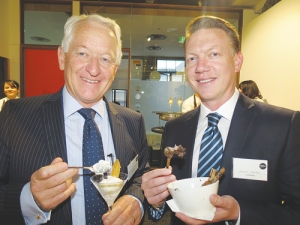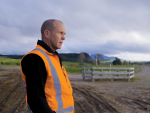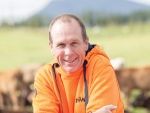Tender export lamb chops and delicious sheep milk gelato were on the menu in Wellington last week.
It was part of a show-and-tell night by Landcorp, the state-owned farmer, to impress its investors and stakeholders on its progress in producing high-value export products with joint venture partners.
About 100 invited guests saw and in some cases sampled some of the products Landcorp and joint venture partners are producing under the PAMU brand (te reo for 'to farm'). Also on show were unique wool slippers made by the Danish company Glerups using wool from Merino NZ, and handbags made from deer leather by NZ Light Leathers.
The lamb is part of a joint venture with Silver Fern Farms to supply the UK supermarket Tesco and the sheep milk is a new joint venture in high-value products for Asia.
The raw materials come from Landcorp farms. Its chair, Traci Houpapa, said the event was to acknowledge its strategic partners' roles in Landcorp becoming a global supplier of niche products from milk, meat and fibre.
"We recognise if we stay at the farmgate we are simply not going to achieve the value add return on our products and that's where NZ farming needs to go," she told Rural News.
"We are still working on the strategy so it's a long-term project. This evening we are demonstrating that Landcorp's strategic partnering with others makes a lot of sense."
Houpapa says Landcorp is also looking at how it can partner with other NZ farmers to achieve "strategic critical mass".











